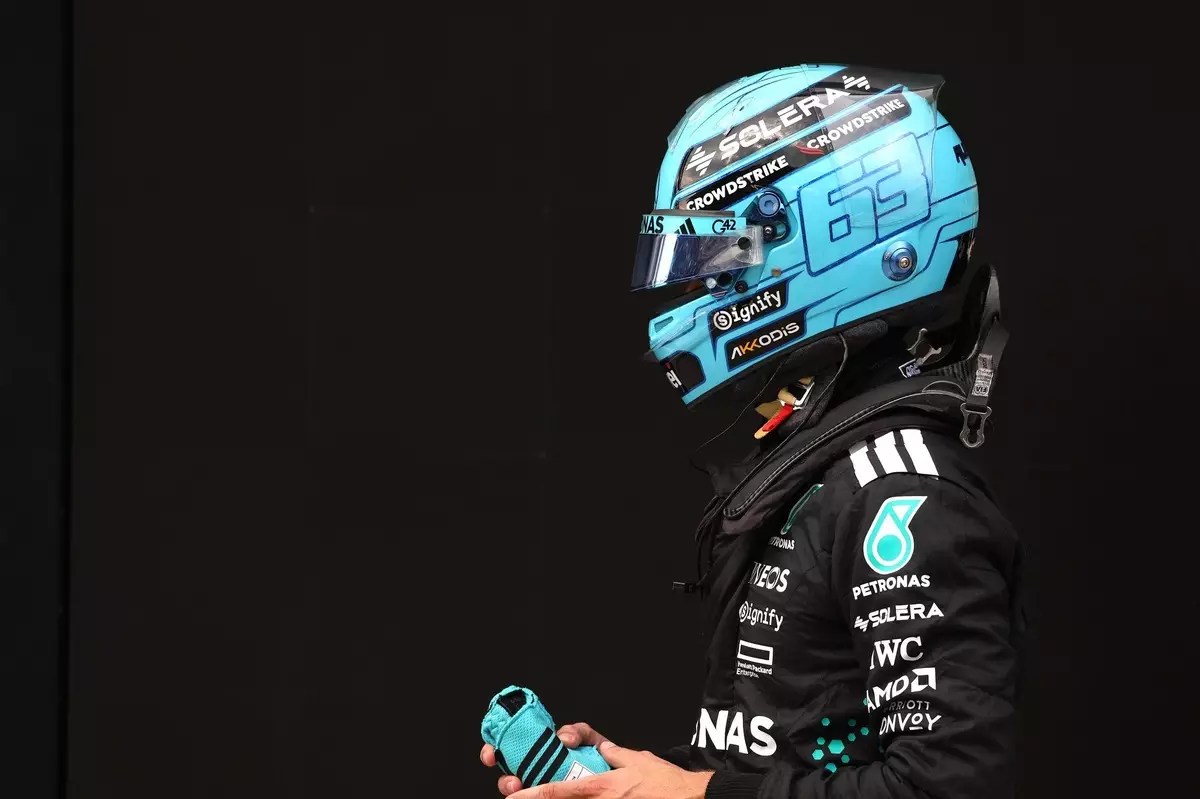In the fast-paced world of Formula 1, negotiations often mirror the intense, high-octane races themselves—filled with adrenaline, strategic moves, and sometimes impulsive decisions. Yet, George Russell’s approach to his contract renewal exemplifies a rare level of patience and strategic foresight that many drivers and teams overlook in the quest for instant gratification. Rather than succumbing to the common pressure to sign at the earliest opportunity, Russell emphasizes the importance of timing, demonstrating maturity that transcends mere contractual obligations. His decision to delay signing until the season’s second half indicates not just confidence in his current standing but a deep understanding of the bigger picture—future performance, team dynamics, and the evolving regulations that will shape 2026 and beyond.
This patience is not simply an act of complacency but a calculated choice rooted in professionalism. While others might rush to secure their future prematurely, Russell recognizes that rushing may compromise his bargaining position or his satisfaction with the terms. His insistance on waiting until the right moment illustrates a savvy understanding that some negotiations require strategic timing to secure optimal conditions—conditions that align with both his career ambitions and personal values.
Balance Between Confidence and Humility
A standout aspect of Russell’s stance is his unwavering confidence coupled with humility. Despite his impressive track record, including multiple wins and consistent performances, he does not let the allure of contract security cloud his judgment. Instead, he views the process as a phase of growth and mutual understanding, underpinning his long-term relationship with Mercedes.
Russell’s comments about not rushing the signature reflect a broader philosophical approach: that his current performance and standing within Mercedes are strong but not invincible. This honesty fosters a healthier team environment, built on trust rather than pressure. His openness about wanting the contract to be “right” demonstrates a maturity that is often lacking in high-profile sports negotiations, where players may prioritize immediate gains over sustainable partnerships. Russell’s method underscores that strategic patience and well-considered negotiations can ultimately strengthen a team’s cohesion and a driver’s sense of security.
Implications for the Future of F1 Contracts
In the broader context of Formula 1, Russell’s approach challenges the conventional wisdom of contract negotiations. Typically, drivers and teams engage in rapid-fire deals during the summer break, driven by the desire to finalize arrangements before crucial races or driver movements. Russell’s refusal to participate in this rush sets a precedent that patience may be a strategic advantage rather than a vulnerability.
Moreover, his stance is particularly relevant given the shifting landscape of F1 regulations and the uncertain pecking order for 2026. With significant rule changes on the horizon, drivers like Russell are wisely avoiding hasty commitments that might lock them into less favorable terms once the new competitive environment stabilizes. This cautious approach underscores a broader trend: drivers are becoming more analytical and selective, recognizing that the longevity of their careers and their competitive futures depend on strategic decision-making rather than expedient contracts.
Assessing Russell’s Leadership and Long-Term Vision
Beyond the immediate contractual implications, Russell’s approach signals his evolution into a leader within Mercedes. His insistence on patience and doing things “when the time is right” resonates with a leadership style rooted in thoughtfulness and integrity. As a rising star, he recognizes that securing a contract is not just about financial or positional security but about establishing a foundation for future growth.
Furthermore, by openly communicating his stance, Russell positions himself as a driver who values relationship-building over transactional deals. This mindset not only garners respect from his peers and team but also elevates the narrative around driver contracts from mere negotiation into an active partnership based on mutual understanding and shared ambitions. His actions inspire a shift in how contracts are perceived within the sport—favoring strategic oversight and long-term relationship management over impulsive signing rushes.
George Russell’s deliberate approach to his contract negotiations embodies a forward-thinking, professional demeanor that sets him apart from typical high-pressure environments. His strategy reflects confidence, patience, and a genuine desire for a partnership that aligns with his long-term vision. Such an approach not only benefits him personally but also signals a potential paradigm shift in how drivers and teams approach negotiations—favoring strategic timing and relationship strength over quick fixes.


Leave a Reply